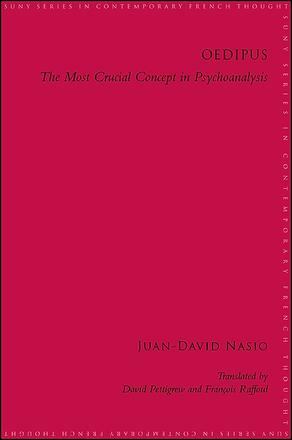
Oedipus
The Most Crucial Concept in Psychoanalysis
First English translation of Nasio's groundbreaking work on the Oedipus complex.
Description
2011 CHOICE Outstanding Academic Title
In this long-awaited book, Juan-David Nasio, one of France's leading Lacanian psychoanalysts, argues that the Oedipus complex represents the core of psychoanalysis as well as the fundamental constitution of the human being. Defying contemporary claims of an alleged "death of psychoanalysis," and in contrast with recent attempts to minimize the relevance of Oedipus for the psyche, Nasio approaches Oedipus as a legend that helps to make sense of the origins of sexual identity and neurotic suffering. Nasio makes the provocative claim that the entirety of the psychoanalytical corpus, all of its concepts, including repression, sublimation, the theory of the drives, desire, as well as the phantasm of the phallus and castration anxiety, revolves around the idea that the child desires the parents. However, insofar as such desire is bound to be contradicted, frustrated, and repressed, Nasio redefines psychoanalysis in light of Oedipus as a discipline concerned with the very limits of human desire.
Included in Oedipus is a fascinating interview with Nasio, which was conducted by the translators for this book.
Juan-David Nasio is a psychoanalyst who lives and works in Paris and was the first psychoanalyst to be inducted into the prestigious French Legion of Honor. David Pettigrew is Professor of Philosophy at Southern Connecticut State University. François Raffoul is Professor of Philosophy at Louisiana State University. Their many books include translations of Nasio's Five Lessons on the Psychoanalytic Theory of Jacques Lacan and The Book of Love and Pain: Thinking at the Limit with Freud and Lacan, both also published by SUNY Press.
Reviews
"…Nasio advances the argument that the Oedipus complex remains at the center of psychoanalysis—indeed, that without it there can be no psychoanalysis." — PsycCRITIQUES
"…Nasio has written a splendid, erudite, and concise volume on what is arguably the central concept in psychoanalysis—the Oedipus complex … A welcome addition to and clarification of the significant body of work on sexual identity, this volume will be valuable across the social sciences and humanities, and appreciated for its clarity, concision, and relevance … Highly recommended." — CHOICE